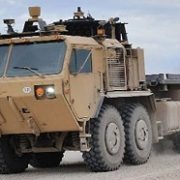Nothing illustrates the problems of Defense procurement better than the troubled program of the F-35. Every year the 5th generation combat plane seems to grow more expensive, less capable, and more delayed in schedule.
What both American critics and proponents of the F-35 often forget is that it’s a multinational project. The US strategy is to spread the cost of this advanced plane among its allies.
One ally invested in the F-35 is Israel. I was curious what its Defense establishment thought of this plane. While not immune to political shenanigans, Israel’s military likes to thinks of itself as ruthlessly practical. Could they cut through the agenda-driven arguments that dog the F-35 in America?
A Times of Israel article details the debate within Israel about the F-35. Some of the criticism will sound familiar to American military analysts.
The F-35:
- “Can’t turn, can’t climb, can’t run”
- Is overweight and underpowered (only one jet engine as opposed to the F-15’s two)
- Did we mention how expensive it is?
The expense criticism is somewhat ironic, since US aid will pay for most of the F-35s’ cost. Still, some Israelis think the aid money could be better spent.
One difference between American and Israeli commentators is that the latter do not worship at the altar of the new and more readily embrace the virtues of older, more established systems. As quoted in the Times of Israel, Yiftah Shapir, of the Middle East Military Balance Project, said:
“Take the army we had in 1985 – the F-15 and F-16 A and B; the Merkava Mark I and II, and all the rest – and ask yourself whether the IDF,” using those weapons, “could defend Israel today against its enemies,”
His answer is an unhesitating yes. Not every technological leap is one Israel is forced to take, he said.
While some in America have also argued that upgrading older fighters would be a better use of resources, it is hard to imagine any of our military analysts blithely dismissing the “latest and greatest.” For example, one of the F-35 strongest critics is Moshe Arens, former Defense minister and a trained aeronautical engineer. He boasted that Vietnam War-era armored personnel carriers were effective in the latest Gaza incursions. When was the last time you heard an American military leader argue that we do not need to invest in new technology?
The Israeli Air Force (IAF) point man for the F-35 is “Lt. Col. B” (Israeli military and intelligence leaders are often granted anonymity in the media). He counters Arens’ arguments with dire predictions of declining Israeli air superiority. Furthermore the comparisons of the early models of the F-35s with the latest versions of the F-16s and F-15s are inappropriate. Rather, “…the first model of the F-35 should be compared to the F-16’s first model and not the plane that has been steadily improved for the past 35 years.”
“Lt. Col. B” continued:
“The question,” he said, “is where to place the seam between the present and the future” – in other words, when does it no longer pay to continue to upgrade the existing platform…”
“Lt. Col. B” bolstered his arguments with a detailed historical perspective. Virtually, all new jet fighter purchases were opposed by the IAF at the time.
Some advocate abandoning the F-35 and waiting for unmanned fighters to become practical. While it is possible that the F-35 will be the last manned combat aircraft, waiting for unmanned fighters is not a practical strategy. Granted, the US Navy has done amazing things with Unmanned Combat Aircraft Vehicles (UCAV), such as carrier landings and aerial refueling. However, basic problems remain. UCAVs crash more often than their manned counterparts, and remote operators hate the poor visibility. In one famous incident an operator flew a UCAV upside down without realizing it.
Since Russia’s announcement of the sale of S-300 Integrated Aircraft Defense Systems to Iran, F-35 advocates have become embolden. According to “Lt. Col. B,” the problem with operating in the depths of enemy territory is not lack of fuel, but inadequate intelligence. The pilot of an F-35 has vastly superior situational awareness than his counterpart in the F-16. This difference is literally a matter of life and death.
Those of you who have been following the sale of the S-300 to Iran may be a little confused by the last paragraph. Depending on who you listen to, the S-300 sale is game changing or a nuisance that can be overcome. Indeed, even without the F-35, Israel has already conducted training exercises against the S-300. Does the S-300 sale strengthen the case for F-35 acquisition or not? This last question depresses me, because I cannot get a good objective answer.
Defense procurement in Israel suffers the same limitations as its American counterpart. For example, Moshe Arens, who was mentioned earlier, is an informed expert on Israeli defense issues. However, he has been waging a decades’ long campaign to restore Israel’s ability to build its own homegrown jets. No matter how legitimate are his criticisms about the F-35, it is entirely possible that no non-Israeli jet would ever satisfy him.
This is the central problem in both American and Israeli Defense procurement. Competent people of good will are involved, but everybody is driven by their own personal agendas. It is impossible to get an unbiased neutral judgment.
The American solution is to ignore the difference of opinion, and try to satisfy everyone. Politicians can’t decide what areas of the world constitute core American interests? Fine, we need the capability to project power everywhere simultaneously. The Pentagon can’t figure out what kind of war we will fight? We will simply prepare for every kind of war. No one really knows what a 5th generational fighter should be? Great, we’ll simply build a plane that is all things to all people.
Obviously, such a policy is not sustainable, not mention ruinously expensive. I do not know what the solution is. I dread that 20 years from now, as commentators examine the latest over-budget weapon system, the F-35 program will look like a model of efficiency and economy.










I also read the article in the Times of Israel. I believe the message was summed up in the last couple of sentences, as quoted from the unnamed IAF officer. The United States “made the F-35 the only game in town.” It doesn’t matter that the F-35 isn’t a precise match for what the Israelis might be looking for. It doesn’t matter that it doesn’t have the range or payload to match the F-15I or F-16I. As a 5th gen fighter, it’s “the only game in town.”
This is why Moshe Arens (and others) mourn the loss of the Lavi. Without an Israeli fighter manufacturing capability, the IAF has no other recourse than to accept what’s available.